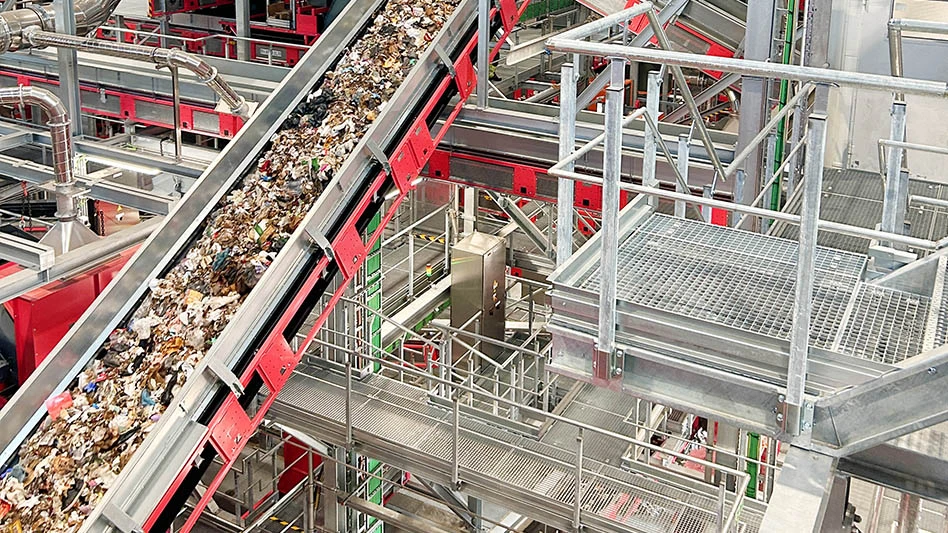The American Biogas Council (ABC), Washington, has released the following statement in response to the U.S. Environmental Protection Agency’s (EPA’s) final rule on 2018 Renewable Fuel Standard volumes (RFS)—the Renewable Fuel Standard Program: Standards for 2018 and Biomass-Based Diesel Volume for 2019.
“ABC is glad to see that, in keeping with EPA Administrator Scott Pruitt’s statement earlier this year, the final volumes for 2018 have been released on time and are not as bad as initially proposed regarding both the actual volumes for biogas and the counting methodology to derive them. However, we remain disappointed about several elements in the final rule.
First, while the final volumes for 2018 show an increase from the proposed 2018 volumes, they show a decrease from the 2017 volumes in an industry that EPA has acknowledged is growing. As the final rule itself states, biogas is playing the leading role in the production of next generation cellulosic fuels.
Second, we recognize and appreciate the improvements that the EPA made to their proposed new counting methodology in the final rule. But the new counting methodology is still a step backwards from the methodology used in previous years and is also backwards-looking, which is inappropriate for the forward-looking RFS.
Third, it is disappointing that EPA has passed another rule that fails to activate the existing electric pathway in the RFS. We urge EPA to use existing regulations, and issue any necessary EPA guidance, to maximize opportunities for small producers to participate in and benefit from the RFS electric pathway in 2018.
Overall, the ABC remains appreciative of the role the RFS plays in driving growth in the biogas industry. When we build more biogas systems, we produce more homegrown renewable fuel, create new infrastructure and jobs, promote domestic investment, increase energy security and protect our air, water and soil. We hope that in the future, the EPA will take stronger steps to support the growth of industries like ours which are trying increase renewable fuel production—the reason that Congress created the RFS.”
“ABC is glad to see that, in keeping with EPA Administrator Scott Pruitt’s statement earlier this year, the final volumes for 2018 have been released on time and are not as bad as initially proposed regarding both the actual volumes for biogas and the counting methodology to derive them. However, we remain disappointed about several elements in the final rule.
First, while the final volumes for 2018 show an increase from the proposed 2018 volumes, they show a decrease from the 2017 volumes in an industry that EPA has acknowledged is growing. As the final rule itself states, biogas is playing the leading role in the production of next generation cellulosic fuels.
Second, we recognize and appreciate the improvements that the EPA made to their proposed new counting methodology in the final rule. But the new counting methodology is still a step backwards from the methodology used in previous years and is also backwards-looking, which is inappropriate for the forward-looking RFS.
Third, it is disappointing that EPA has passed another rule that fails to activate the existing electric pathway in the RFS. We urge EPA to use existing regulations, and issue any necessary EPA guidance, to maximize opportunities for small producers to participate in and benefit from the RFS electric pathway in 2018.
Overall, the ABC remains appreciative of the role the RFS plays in driving growth in the biogas industry. When we build more biogas systems, we produce more homegrown renewable fuel, create new infrastructure and jobs, promote domestic investment, increase energy security and protect our air, water and soil. We hope that in the future, the EPA will take stronger steps to support the growth of industries like ours which are trying increase renewable fuel production—the reason that Congress created the RFS.”
Latest from Waste Today
- US Senate backs reduced cuts to EPA
- ELV Select Equipment, Reworld aid NYPD in secure firearm disposal
- Waste Connections announces Q2 results
- Returnity and Cosmoprof to address reusable bag waste
- SWANA releases report on aging WTE facilities
- New economic assessment reveals cost benefits of California’s SB 54
- Premier Truck Sales & Rental opens new facility
- TeknTrash Robotics, Sharp Group partner on humanoid robot pilot





